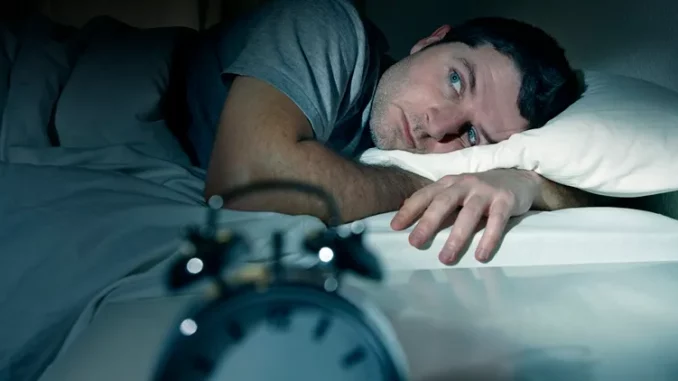
In today’s non-stop world where long hours and high productivity are taken for granted, a restful night can easily become an afterthought. But even if we forget to go to bed on time every once in a while–it’s worth noting that there are some benefits to not getting enough sleep too…when did this kind of logic develop? At any rate, from Sleep Breathing Disorders (SBDs) through to Sleep Respiratory Disorders (SRDs), the effects of insomnia extend far beyond simply feeling groggy.
Recent research has demonstrated that if sleep becomes our enemy and we are unable to get enough rest at night no matter how hard or long we try since there is always something which interferes with our ability in some manner–feeling uncomfortable on our backs, for example–then everything from cardiovascular function”homeostasis” (i.e., achieving balance) to metabolic processes would be interfered with as well.
The Forbidden Toll on Cardiovascular Health
It takes only a lack of sleep to disrupt heart health fundamentally by increasing the risk of hypertension, heart disease, and stroke. When you do not get enough rest, your body experiences higher levels of stress hormones such as cortisol. This can potentially raise blood pressure and lead to inflammation in arteries.
Changes like these over time contribute to the development of cardiovascular disease. A recent study found that people who sleep less than six hours per evening on an ongoing basis are significantly more likely than others to suffer from heart disease and strokes. Death Due to Cardiovascular Disease is ten times higher in people who habitually sleep less than 8 hours a night than it is with those getting a full night’s sleep.
Chocolate isn’t Gathering Herbs:Disrupted Metabolic Processes and Weight Increase
Lack of sleep affects the body’s metabolic processes, leading to overweight and obesity. When the balance of hunger-related hormones is disturbed, people tend to eat more high-fat foods. Ghrelin, the hormone that stimulates hunger, increases; leptin, which signals fullness, decreases.
This hormonal imbalance can lead to overweight and obesity, which in turn raises the risk of type 2 diabetes. Research has shown that people who are sleep-deprived are more likely to develop insulin resistance–a precursor for diabetes–even if their diet and exercise habits are entirely healthful.
The immune system is also damaged by lack of sleep. Cytokines are proteins that help regulate immunity and fights infection. They are produced during sleep. Poorly rested chronic pharmaceutical dependency or alcohol abuse would lead to reduced cytokine production and an undermined immune system vulnerability.
In a controlled study of people who were kept awake for 48 hours or more their ability to mount an immune defense against cold viruses was seriously impaired when compared to their well-rested counterparts.
Cognitive Decline and Psychiatry
Sleep deprivation more seriously affects cognitive and psychiatric function than most people know about. Chronic lack of sleep can lead to weakening of cognitive functions, such as memory, attention and decision making speeds—all things that distance you from your information source.
This sort of mental decay is not only bothersome in itself but may also have important physical effects: it gives rise to a greater risk of accidents and injury while driving tired. It is also associated with mental health disorders such as depression and anxiety, which in turn amplify physical illness.
Sleep Methodologies
Based on such surprising effects, the priority of sleep for health is self-evident. Picking up good sleep habits can bring about a change in your life. One part of sleep hygiene is maintaining regular hours both for waking and sleeping.
Also, you should put your head down in darkness, not too hot nor too cold, and free from distracting noise. Stimulation-causing products like caffeine or electric things must be avoided before bed. Physical exercise in moderation, and management of stress through relaxation techniques can also help you achieve better sleep.
In conclusion, not having enough sleep is not just an annoyance but it seriously hurts one’s physical well-being. Appropriately by recognizing and eliminating the surprising health effects of insomnia, it is possible to make arrangements that everyone is getting the nourishing rest they require for optimal operation. In addition Promotion of sleep is about more than merely feeling rested. It is important for long-term health as well as short-term satisfaction.